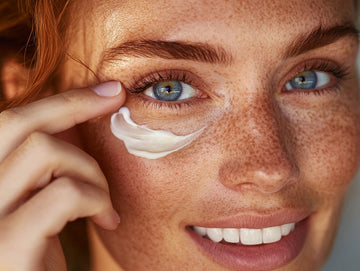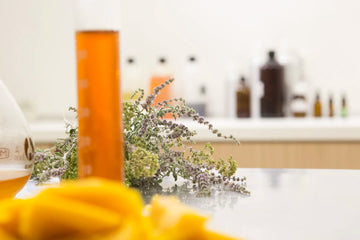In a world increasingly focused on health and wellness, organic products have gained substantial popularity. From skincare to food, consumers are on the lookout for the benefits that organic items promise. However, amidst the growing market, the presence of fake organic products is a troubling reality. Identifying these impostors can be tricky, but with the right knowledge, you can confidently choose genuine organic items. In this article, we will explore effective strategies to help you differentiate between authentic organic products and those that are merely pretending. Let's dive in!
Understanding Organic Certification
The first step in spotting fake organic products is to understand the significance of organic certification. In the U.S., the USDA (United States Department of Agriculture) regulates organic labels. Here are some crucial points to consider:
- USDA Organic Seal: Look for the USDA Organic seal on products. This certified label ensures that the product meets strict guidelines during its production.
- Types of Certification: Familiarize yourself with the different levels of organic certification. Products labeled as "100% Organic" contain only organic ingredients, while "Organic" products must consist of at least 95% organic ingredients.
- Made with Organic Ingredients: Products with this label must contain at least 70% organic ingredients but cannot display the USDA Organic seal.
Scrutinizing Ingredients
Another effective method to identify fake organic products is to closely examine the ingredient list. A true organic product will have a concise list of natural ingredients. Here are some red flags to watch out for:
Look for Synthetic Additives
If you see a long list of complicated chemical names, it’s likely that the product is not genuinely organic. Authentic organic skincare should favor simple, natural ingredients. For example, many true organic face creams enrich their formulations with ingredients like tallow for skin, renowned for its nourishing properties.
Check for Natural Fragrances
Many skincare products boast organic labels but include synthetic fragrances. These can lead to skin irritations and are often masking harmful chemicals. Genuine organic products will typically contain natural scents derived from essential oils instead.
Research Brands and Their Practices
Your experience with organic products should also include looking into the brands themselves. The origin and production methods reveal a lot about whether a product can truly be considered organic.
Brand Transparency
Reputable brands pride themselves on transparency. They provide clear information about their sourcing and production processes. Before purchasing, visit the brand's website to understand its philosophy and practices. In the case of skincare products, reputable companies often showcase their commitment to organic and sustainable practices through certifications, partnerships, and ingredient sourcing stories.
Customer Reviews and Testimonials
Nothing speaks louder than customer experiences. Dive into customer reviews to gauge the authenticity of a brand and its products. Look for testimonials that highlight the benefits and effectiveness of their offerings, particularly regarding products like a Limited Time Sample Face Cream. Genuine feedback can be instrumental in discerning the brand’s credibility.
Price Points: Too Good to Be True
While comparisons can be challenging in the expansive skincare market, significant price discrepancies can indicate a product's authenticity. Organic products often come with a larger price tag due to their sourcing and production. If you find a product at a fraction of the price of its authentic counterparts, proceed with caution.
- Cheap Ingredients: If a product is too inexpensive, it may not contain high-quality organic ingredients.
- Brand Comparison: Compare prices within reputable brands. If one seems drastically cheaper, it may be fake.
The Importance of Packaging
Packaging tells a lot about a product. High-quality organic brands often take extra care with their packaging to align with their commitment to the environment. Fake organic products may cut corners here. Here’s what to look for:
Look for Sustainable Packaging
As awareness of sustainability grows, many authentic organic brands utilize eco-friendly packaging. If you notice excessive plastic or non-recyclable materials, chances are high that it might not be an organic product. Brands focused on organic integrity will ensure their packaging reflects their values.
Check for Clear Labelling
Genuine products have clear, professional labeling. The ingredients and certifications should be easy to find and read. If the product label appears poorly printed or has unclear or too-fine print, it could be a red flag.
Engaging Your Senses
Your senses can also play a critical role in identifying a genuine organic product. Here’s how:
Texture and Consistency
Real organic skincare products usually boast rich, effective textures. They should feel nourishing and hydrating on the skin, not greasy or over-drying. If a face cream leaves an uncomfortable residue, it might not be a genuine organic product.
Fragrance
As mentioned earlier, true organic products use natural ingredients; therefore, their scents would be subtle and pleasant, stemming from actual plants rather than synthetic chemicals. While fragrances can vary, a strong overpowering chemical scent likely indicates an artificial product.
Conducting the Smell Test
Remember, your sense of smell is uniquely attuned to detect artificial ingredients. Natural products tend to have a mild scent derived from their ingredients. If your product has a powerful or unidentifiable scent, it’s worth diving deeper!
Expert Opinions and Recommendations
Engaging with experts can guide you toward reliable organic products. Influencers, bloggers, and beauty experts are keen observers of the skincare world and often make recommendations based on ingredient integrity and proven results.
Follow Organic Certifying Bodies
Many certifying organizations have lists of brands they officially recognize. Following them can expose you to recommendations that meet their rigorous standards for organic products.
Local Recommendations
Support local businesses and engage with skincare professionals in your area. They may have insights into trustworthy organic brands that align with your desires for ethical and clean skincare.
Social Media and Community Feedback
Social media has a voice of its own, and it’s an excellent platform for gathering opinions on organic products. Many users share their experiences, helping you to make informed choices.
Join Online Communities
Participate in online forums or social media groups dedicated to organic beauty. These communities can offer invaluable insights, helping you navigate what’s genuine and what’s not. Be sure to check hashtags, reviews, or discussions involving the products you’re interested in.
Your Experience Matters
Each individual’s skin is unique, which means personal experiences with products can vary significantly. Keep a skincare journal to track your thoughts and results with each product. This not only helps identify what works for you but also aids in recognizing patterns associated with fake products that may not deliver on their promises.
Be Wary of Over-promising Claims
Authentic organic products may make claims about benefits, but they won’t promise miracles. If a product claims to erase years of aging overnight or completely transform your skin within a week, it is likely over-promising. Real skincare is a journey, and the results speak for themselves over time.
Your Path to Authentic Organic Products
Finding genuine organic products may require a little more effort but trust us; it’s worth it. Equipped with the above strategies, you’ll be able to uncover the truth behind organic product labels and avoid falling for the tricks of fake ones. Remember to invest time in researching, understanding, and engaging with your skincare products and brands.
Your skin deserves only the best. By committing to an informed purchasing process, you can enhance both your beauty routine and your health. So, set out on this journey, confident in your ability to discern the genuine from the faux in organic products!



